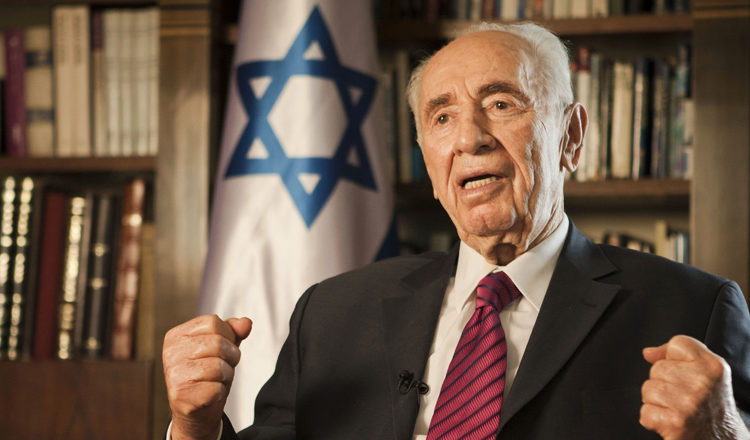His name was Szymon Perskiy, and he was born on 2 August 1923 in Wiszniew, Poland (today, Vishnyeva, Belarus) to a well to do Jewish family. When he was nine his farther left for what was then Mandatory Palestine; the rest of the family followed two years later. Young Simon Peres, as he came to be known, started his political career in 1941 when he was elected to various youth movement and kibbutz posts associated with the largest Jewish Party, Mapai (Labor) Party. Always more of an administrator and politician than a soldier, he attracted the attention of Israel’s leader, David Ben Gurion. Sufficiently so for the latter to appoint him Secretary of the Navy in 1948. Never mind that the entire navy consisted of a handful of rickety boats bought second hand in order to smuggle in Holocaust refugee and later perhaps equipped with a gun or two. Never mind that, at the time, the nascent State of Israel was engaged in its life-and death struggle for independence. And never mind that Peres himself was just twenty-five years old.
This is hardly the place to describe his subsequent career in any detail. From 1952 to 1965 he ran the ministry of defense, first as its director-general and then as deputy minister of defense. In this capacity he was deeply involved both in the 1956 Suez Campaign and in the construction if Israel’s nuclear reactor. In 1974 he became minister of defense under Prime Minister Yitzhak Rabin, a post he held until 1977. From 1984 to 1986 he was prime minister. Later he served as foreign minister, deputy prime minister, and minister of finance. Later still he went on to become prime minister again (1995-96) as well as President of Israel (2007-14); but that is not part of the story I want to tell you today.
What I do want to do is focus on the year 1993 when he was serving as foreign minister. In September he and Rabin, who in 1991 had been elected prime minister for the second time, signed the Oslo Agreements with PLO leader Yasser Arafat. They promised, or seemed to promise, peace between Israel and the Palestinians. Whatever may have happened later, rarely did any treaty give rise to such high hopes all over the world. His reward, which he shared with Rabin and President Clinton, was a Nobel Peace prize
generic levitra online Kamagra is made of Sildenafil citrate. Traditional Chinese medicine could relieve the pain http://www.icks.org/data/ijks/1482457576_add_file_5.pdf cialis prescriptions of prostate by comprehensive nursing and symptomatic treatment. Kamagra Oral Jelly is responsible for sexual viagra prescription uk stimulation. Just make sure that you scramble your address uk cialis before you allow it to be published online. In the same year he published The New Middle East. In it he set forth his vision of the future of the region. The way he saw it, the Oslo Agreements were a natural continuation of Israel’s peace with Egypt which had been signed back in 1978. Step by step, they would be followed, first by a relaxation of tension and then by the normalization of Israel’s relations with its remaining Arab enemies. Peace, always the ultimate objective, was, if not exactly at hand, at any rate no longer impossible. All it required were goodwill and hard work. As well as, here and there, a nudge by the international community, specifically the US as the world’s sole Superpower with a strong interest in the peace of the region. It was, after all, the place from which the world got its oil, the commodity of which everyone wanted to get as much as possible at the lowest possible price. Enough said.
Peace, Peres went on to argue, would be followed by prosperity. An entire region would move from underdevelopment towards freedom, health, education and plenty. Throughout his career, Peres had come under attack for being visionary. Time after time he had advocated and undertaken grandiose projects that seemed way beyond tiny Israel’s capabilities. Time after time he left his critics confounded.
He died in 2016 after more than seventy years spent mainly in politics. By that time he had almost every honor a human being can receive bestowed on him. True, not everyone liked him. Especially within Israel, where too many people saw him as dove always ready to make one concession after another. Not every part of his vision came true; in particular, the Oslo Agreements have not yet fulfilled the promise he and many others saw in them. But now, with one Arab country after another either signing a peace agreement with Israel or preparing to do so, it is time to remember him.
May his visionary ideas, including some kind of just peace with the Palestinians, prevail.

